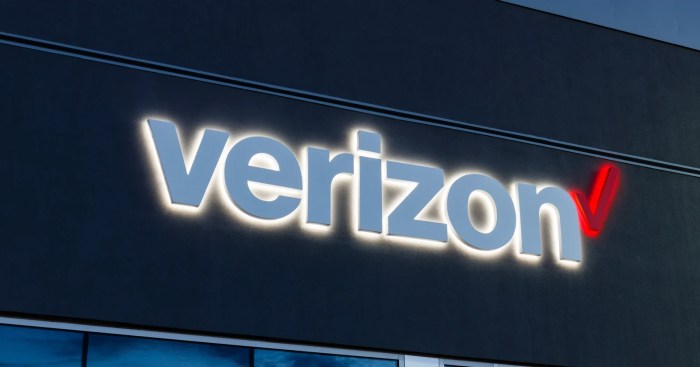Verizon Super Cookie
Verizon’s Super Cookie, also known as a “unique identifier,” is a tracking mechanism used by Verizon to identify and track users across multiple websites and apps. It functions by assigning a unique code to each user’s device, allowing Verizon to collect and analyze data about their online activity.
Functionality of Verizon’s Super Cookie
Verizon’s Super Cookie works by leveraging the unique identifier assigned to each user’s device. This identifier is embedded in every web request made from that device, allowing Verizon to track the user’s online activity across different websites and apps. This tracking enables Verizon to gather a wealth of information about users’ browsing habits, including the websites they visit, the content they interact with, and the time they spend on each site.
Data Collection and Utilization
Verizon utilizes the Super Cookie to collect data about user behavior for various purposes, including:
- Targeted Advertising: Verizon uses the collected data to personalize advertising based on users’ interests and browsing history. This allows advertisers to target specific user segments with relevant ads, potentially increasing ad effectiveness and revenue.
- Website Optimization: Verizon can analyze user data to understand website traffic patterns, identify popular content, and optimize website design and functionality for better user experience.
- Product Development: Verizon uses the collected data to gain insights into user preferences and needs, which can inform the development of new products and services.
- Market Research: Verizon can use the data to conduct market research, analyzing user demographics, interests, and behavior to understand market trends and consumer preferences.
Privacy Implications of Verizon’s Super Cookie
Verizon’s Super Cookie raises concerns about user privacy, as it allows the company to track users’ online activity without their explicit consent. This tracking can potentially lead to:
- Privacy Invasion: Verizon’s Super Cookie enables the company to collect extensive data about users’ online behavior, potentially revealing sensitive information about their interests, habits, and personal preferences.
- Data Misuse: The collected data could be misused for purposes other than those stated by Verizon, such as selling user data to third-party companies or using it for targeted manipulation.
- Lack of Transparency: Verizon’s Super Cookie operates in the background, with limited transparency about the data collection process and its use. Users may not be fully aware of the extent of their online tracking and the information being collected.
Opting Out of Verizon Super Cookie
While Verizon has addressed the Super Cookie issue, concerns about privacy and data collection remain. Understanding your options and taking steps to protect your privacy is essential.
Methods for Opting Out
Verizon offers a few methods for opting out of their data collection practices, but the effectiveness and comprehensiveness of these methods are subject to ongoing debate. Here are the available methods:
- Verizon’s Website: You can access Verizon’s website and navigate to their privacy settings. Within these settings, you may find options to control the data Verizon collects about your online activities.
- Browser Extensions: Third-party browser extensions, such as Privacy Badger and uBlock Origin, can help block trackers and cookies, including those from Verizon. These extensions work by identifying and blocking known trackers based on their domain names or other identifiers.
- Privacy-Focused Browsers: Browsers like Brave and Firefox offer built-in privacy features that can help reduce tracking and data collection. These browsers often include features like enhanced tracking protection, cookie blocking, and other privacy-enhancing settings.
- VPN: A Virtual Private Network (VPN) encrypts your internet traffic and routes it through a server in a different location. This can make it more difficult for Verizon to track your online activities. However, it’s important to note that VPNs are not a foolproof solution for privacy protection.
Privacy and Data Protection
In the digital age, where our online activities leave a trail of data, protecting our privacy is paramount. With every click, search, and purchase, we generate information that can be used to build detailed profiles about us. This raises concerns about how our data is collected, stored, and used, and the potential consequences of not having control over it. Verizon’s Super Cookie, a unique identifier that tracks users across websites, adds another layer to these concerns, highlighting the need for transparency and control over our online privacy.
Verizon’s Super Cookie and Data Protection Regulations
Verizon’s Super Cookie, despite its name, is not a traditional cookie. It is a unique identifier that is assigned to each user and used to track their browsing activity across different websites. This tracking allows Verizon to build detailed profiles about users’ interests and preferences, which can then be used for targeted advertising and other purposes. However, the use of such identifiers raises concerns about data privacy and compliance with regulations.
Verizon claims that the Super Cookie is used to enhance user experience and deliver relevant content. However, many privacy advocates argue that it violates user privacy and raises concerns about data security. The Super Cookie is not subject to the same privacy regulations as traditional cookies, which are typically governed by laws like the General Data Protection Regulation (GDPR) in Europe and the California Consumer Privacy Act (CCPA) in the United States. These laws provide users with the right to access, delete, and control their data, but Verizon’s Super Cookie operates outside the scope of these regulations.
Potential Consequences of Not Opting Out of the Super Cookie
Not opting out of the Super Cookie could have several potential consequences for users.
- Increased Targeted Advertising: By tracking your browsing activity, Verizon can create a detailed profile of your interests and preferences. This information can be used to deliver highly targeted advertising, which can be intrusive and overwhelming.
- Data Security Risks: The Super Cookie, being a unique identifier, can be used to track users across multiple websites. If this data falls into the wrong hands, it could be used for identity theft or other malicious purposes.
- Privacy Violations: The Super Cookie allows Verizon to collect and store vast amounts of personal data without explicit consent. This raises concerns about privacy violations and the potential for misuse of this data.
- Lack of Control: By not opting out, users relinquish control over their data and how it is used. This can lead to a sense of vulnerability and a lack of trust in the online environment.
It is important to note that Verizon has taken steps to address privacy concerns related to the Super Cookie. They have implemented mechanisms for users to opt out of tracking and have published a privacy policy that Artikels their data collection practices. However, these measures may not be sufficient to address the concerns raised by privacy advocates.
Alternatives and Best Practices: Opt Out Of Verizon Super Cookie Now Really Possible
Navigating the digital landscape while prioritizing privacy is a crucial aspect of online safety. While opting out of Verizon’s Super Cookie is a step in the right direction, it’s essential to explore additional strategies for safeguarding your online footprint. This section will delve into alternative methods for browsing the internet privately and offer practical recommendations for protecting your data.
Privacy-Focused Browsers
Using privacy-focused browsers is a fundamental step in safeguarding your online activity. These browsers are designed with enhanced privacy features, minimizing data collection and tracking.
Here are some notable options:
- Brave Browser: This browser blocks ads and trackers by default, enhancing privacy and page load speed. Brave also incorporates a built-in Tor integration for enhanced anonymity.
- Firefox: Mozilla Firefox, a popular open-source browser, offers robust privacy settings and extensions for enhanced data protection. Firefox also prioritizes user privacy by limiting data collection and tracking.
- Tor Browser: Designed for anonymity, Tor Browser routes your internet traffic through a network of relays, making it challenging to track your online activity. Tor is particularly beneficial for individuals seeking heightened privacy, such as journalists or activists.
Privacy-Focused Extensions
Browser extensions can further augment your privacy by adding specific functionalities to your chosen browser.
- uBlock Origin: This extension effectively blocks ads, trackers, and other intrusive elements, minimizing the amount of data collected about your browsing habits.
- Privacy Badger: This extension automatically blocks third-party trackers, reducing the amount of data shared with advertisers and other entities.
- HTTPS Everywhere: This extension enforces HTTPS connections, ensuring that your data is transmitted securely over the internet.
Future Implications
The realm of data collection and privacy is in constant flux, driven by advancements in technology, evolving societal norms, and the ever-present tug-of-war between individual rights and corporate interests. As we navigate this evolving landscape, understanding the potential future implications of data collection and privacy becomes crucial.
The rise of artificial intelligence (AI), the Internet of Things (IoT), and the proliferation of connected devices are profoundly shaping the data collection landscape. These technologies are creating unprecedented opportunities for data generation and analysis, but they also present significant challenges for user privacy.
- AI and Machine Learning: AI algorithms can process vast amounts of data, uncovering intricate patterns and insights. This capability empowers businesses to personalize experiences, predict user behavior, and optimize operations. However, the use of AI for data analysis raises concerns about transparency, bias, and the potential for misuse. The black box nature of some AI algorithms can make it difficult to understand how decisions are made, potentially leading to discriminatory outcomes or breaches of privacy.
- Internet of Things (IoT): The proliferation of interconnected devices, from smart homes to wearable fitness trackers, generates a constant stream of data about user activities, preferences, and even physiological states. This data can be valuable for healthcare, home automation, and other applications, but it also presents a significant risk of data breaches and unauthorized access. The increasing connectivity of our lives raises concerns about the potential for surveillance and the erosion of personal privacy.
- Biometric Data: Advancements in facial recognition, voice recognition, and other biometric technologies are enabling new ways to identify and authenticate individuals. While these technologies offer convenience and security benefits, they also raise concerns about the potential for misuse, especially in contexts where consent is not readily obtained or where data is collected without explicit knowledge or permission. The collection and storage of sensitive biometric data require robust safeguards to ensure privacy and prevent unauthorized access.
Opt out of verizon super cookie now really possible – In an era where data is king, it’s crucial to be aware of how your information is being used. Verizon’s super cookie is just one example of the vast network of tracking technologies that operate behind the scenes. While opting out might not completely eliminate all tracking, it’s a step towards regaining control over your digital footprint. By understanding the options available and taking proactive measures, you can navigate the online world with greater confidence and privacy.
So, you’re finally ready to ditch Verizon’s “super cookie” and reclaim your privacy? Good news, it’s actually possible! While you’re on the privacy train, you might be interested in the news that Apple’s Project Titan isn’t actually building a car anymore – they’re focusing on autonomous driving technology instead. apple project titan not building a car And just like ditching Verizon’s tracking, opting for a more privacy-focused approach to self-driving technology might be a good move for your digital well-being.
 Standi Techno News
Standi Techno News

